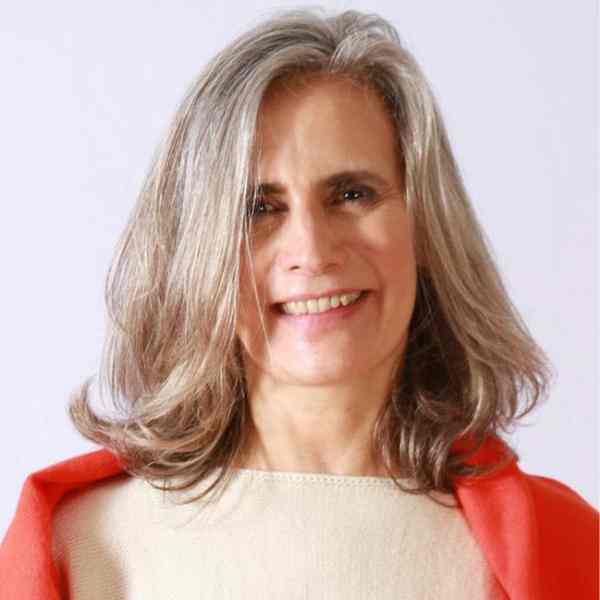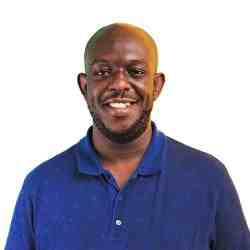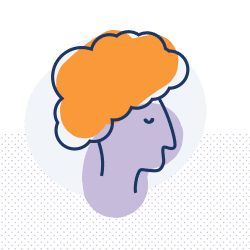Introduction
Adriana is fostering a sustainable fashion movement by establishing global mechanisms to enable rural Andean producers full and consistent access to global markets, while also shifting mindsets in the fashion industry.
The New Idea
Adriana Marina is changing mindsets in the fashion industry by fostering an ethical and sustainable supply chain. By working in a holistic model, with rural and indigenous communities, she is preserving traditional practices of natural fiber cultivation and production, introducing management, design and technology enabling marginalized communities to directly connect to international fashion markets. In doing so, the number of intermediaries between producer and consumer are reduced significantly, giving economic wherewithal back to marginalized communities. In addition, she is promoting sustainable and ethically produced clothing in an industry known for its pollutive and unethical practices.
Through her business, Animaná (a certified B Corporation), Adriana works with local indigenous and rural farmers and producers to create high-fashion accessories, clothing and home goods, with a business model with competitive prices. All products are produced using natural fibers from the Andean and Patagonian regions, including fibers from exotic animals like the South American camelids; llama, guanaco, alpaca and vicuña, as well as products made of native organic cotton and merino wool. Through Centros de artes y oficios, local art and craft centers training institutions, animaná trains local communities in how to transform their artisan products to meet high-fashion demands. Products are then sold locally within the region, as well as to the international markets.
Adriana is connecting a wide range of actors including communities, consumers, producers, designers, government, educators, and youth to promote fashion as a key piece for sustainable development. Hecho por Nosotros and The Ethical Fashion Forum for Latin America (Foro Latinoamericano de Moda Etica), are the two platforms founded by Adriana, which serve as a knowledge hub for good practices, talks, and exchange.
The Problem
Fashion is a US$1.2 trillion global industry. Among the great capacity for income generation, the fashion industry ranks high in discriminatory working conditions and polluting practices. Due to inadequate laws and lack of ethics, human rights violations are prevailing. This is especially true in least developed countries where the most vulnerable communities suffer the consequences of a globalized fashion industry. There are countless reports of factories producing clothing with modern day slavery, child labor, unsafe working conditions, and salaries so low that workers can barely survive on them.
The ecological impact of the fashion industry is also staggering: it is known as one of the most contaminating industries of today. The fashion industry has been known to exploit and treat animals inhumanely. To compound the problem further, the industry is not showing interest towards evolving to a positive change.
In recent years, fast fashion has further exacerbated human rights abuses and environmental damages. Fashion industry is currently running over 50 micro seasons per year. With new trends coming out every week, the goal of fast fashion is for consumers to buy as many garments as possible, as quickly as possible. Most commonly, the cheaper prices for fashion items are accommodated with cheap, bad quality materials, accompanied with low production costs made possible by illegal practices. Most commonly, the cheaper prices for fashion items are accommodated through lower production costs supported by illegal practices.
Natural fibers can provide a viable solution for many of the problems communities are facing today from environmental pollution through artificial fibers, through rural migration and local development. More, camelids fibers - one of the most high-quality and finest fibers in the world - are hypoallergenic and non irritating to the skin, and their cultivation especially within the indigenous communities have proven positive impact on biodiversity. Despite this, there is a lack of government incentives for natural fibers production linked to local development due to lack of accurate knowledge and public policies to incentivize accordingly.
The fashion industry lacks transparency and a network of committed actors around the world. Because of this, the problems of fashion industry raised above are exacerbated, since consumers are not necessarily aware of the social and environmental impact of the brands they are buying. Moreover, the sector lacks reliable, transparent certification processes to enable sustainable businesses and entrepreneurs to compete against mainstream corporations. In summary, the scope of the problem is far-reaching and has grave consequences if we don’t face the problem holistically and show responsibility and dignity as human beings.
The Strategy
Both of Adriana’s organizations, animaná and Hecho por Nosotros, are at the forefront of a new fashion movement that will create a positive network involving all actors of the industry looking for products that are sustainably and ethically made. To that end, Adriana develops partnerships with local organizations along the Andes. She works with rural communities to develop the natural fibers and trains rural inhabitants in skills that help match their ancestral techniques with high fashion design demands.
Animaná is a B certified fashion company producing accessories, women’s clothes and home products. All products are made by Andean communities utilizing traditional techniques, using natural fibers from Patagonia and the Andes, as well as skills and tools passed down for generations in these communities. Through the company, Adriana unites actors along all parts of the production and supply chain, indigenous communities, small and medium local businesses, and designers and ensures the creation of ethical and sustainable products. Currently, animaná has one store in Paris, at St Germain, a showroom in Buenos Aires and online stores available in Europe, the United States, and Argentina.
Adriana knows that to change paradigm in industry, a joint effort is required to raise awareness. In 2008, Adriana founded the social organization, Hecho Por Nosotros, and since then has built a broad network of artisans, producers, professionals, and students dedicated to a sustainable fashion movement. Since it’s establishment, Hecho por Nosotros has worked in collaboration with numerous regional and international institutions and organizations; Ethical Fashion Forum in London, Universal Love Paris, Ethical Fashion Initiative (EFI) European Union, UN Industrial Development Organisation UNIDO, etc. Moreover, since 2016, Hecho por Nosotros has been addressing questions of sustainable fashion with United Nations Economic and Social Commission (ECOSOC) consultative status. Such work focuses on highlighting the possibilities of the fashion industry to advance Agenda 2030 of sustainable development goals, by organising events and panels, through oral and written statements, and making the problems of the industry known at the highest political level, building networks with all stakeholders interested in sustainable development of this industry.
Adriana also works with schools and universities to develop projects, university modules and webinars based on sustainable fashion principles for future fashion professionals and consumers. She also developed a research Center Quampulu which brings together different actors in the industry--academics, companies, designers, professionals, communicators, among others, to learn from each others; local artisans to develop their skills and business models with renowned international fashion professionals and mentors, and to develop and pass over ancestral artisanry techniques and cultures. The last month, Adriana accessed to a grant of the Buenos Aires Ministry of Culture to develop an Ethical Fashion School to be developed during 2017 and 2018.
In order to reinforce her work on the education side, Adriana’s son has stepped in to help manage Animaná. In doing this, Adriana is looking to focus on widening animaná’s reach. In the next 5 years, Adriana hopes to open 10-20 more stores, including one in Buenos Aires. In addition, she wants to sell to retailers in France, Switzerland, New York, and Nordic countries, as well as expand online to United States markets. Moreover, she hopes to employ a franchise system to expand retail locations quickly around the world. For Hecho por Nosotros, Adriana plans to present a comprehensive economic plan in the upcoming years to involve more actors in the fashion industry to join her ethical movement. Adriana sees a new future for the fashion industry, and through both her retail brand animaná, and the NGO Hecho por Nosotros, she is on her way to making sustainable and ethical fashion a reality.
The Person
Adriana Marina was born in the heart of Patagonia in the Santa Cruz province of Argentina. Although she moved to Buenos Aires as a child, her visits to her grandmother’s farm in Patagonia had a profound impact on her worldview. For four months every year, she would stay in Patagonian helping her grandfather on her sheep farm. It was there were she observed and grew passionate about animals and nature. She also experience the drawbacks of social hierarchy and exploitation in the natural fibers market. She saw that these people did not have the ability to improve their lives, and instead were working hard and earning only enough to survive. The injustices she personally witnessed propelled her into the next stages of her life.
Adriana is graduated in Information Systems at the University of C.A.E.C.E. She earned a Master's degree in Economics and became a researcher linking the studies around poverty, inequality and development. Besides she was, pioneer working in knowledge networks and the analysis of the Internet and technology as a economical and social change tool, by the World Internet Project (WIP), an international net of 25 universities. Through all this experience, she learned to understand economic systems which could be combined with her drive to change business practices into sustainable business model.
Adriana has had many difficulties in her life. She has moved a lot within Argentina as well as internationally and had to cope with changing environments. However, in doing so she gained a world perspective, as well as a wide network of people with shared interests. Her experience visiting Patagonia as a girl and then living in Salta near rural communities, gave her confidence and drive to create her two organizations dedicated to changing the fashion industry. Animaná and Hecho por Nosotros are Adriana’s life, and she puts all that she has—her intellect, passion, drive, and life experiences–into realizing her dream of an ethical fashion industry today.




